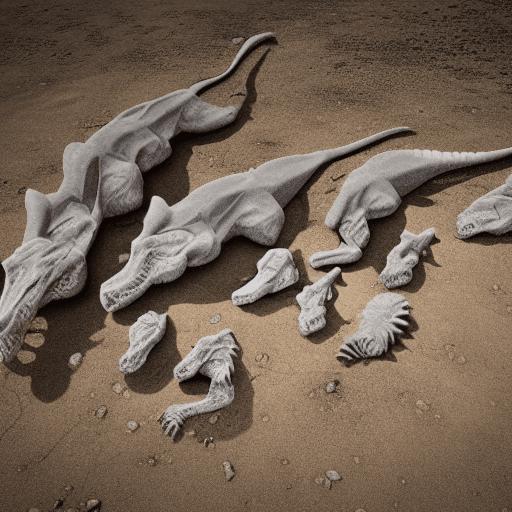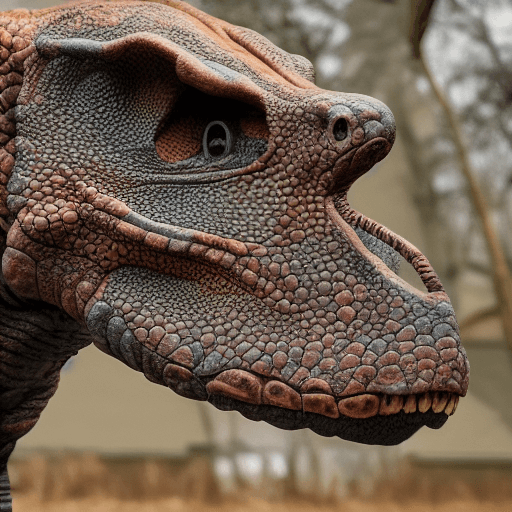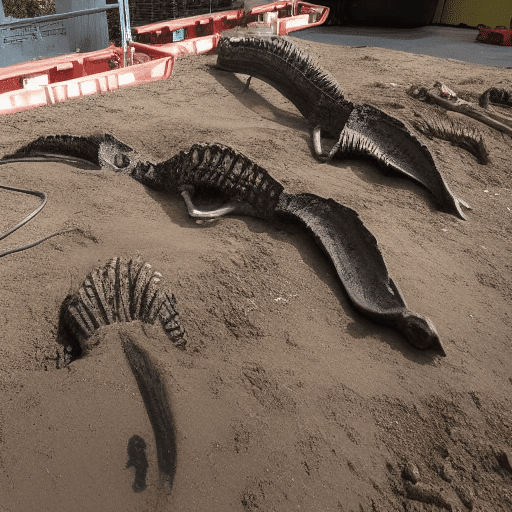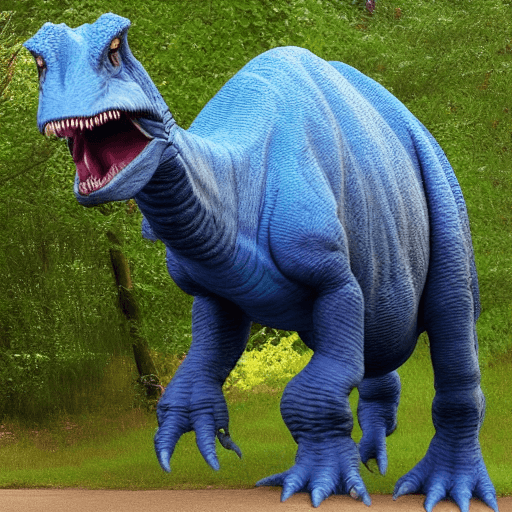Dinosaur Lifespan
How long did dinosaurs live for?
Do you know how long a dinosaur’s lifespan is?
10 Years? 20 Years…100 Years?
Scientists have been trying to answer this question for many years, and they are still working on it.
Today we’ll explore the different theories that scientists have about the dinosaur lifespan.
We will also discuss what we currently know about dinosaur aging and death.
We may soon have a better understanding of how long these prehistoric creatures lived!

It is believed that the average lifespan of a dinosaur was somewhere between 20 and 30 years.
Explain It To A Child
Scientists have been very interested in the long life of dinosaurs. They have used evidence from fossil records to estimate that the average lifespan of a dinosaur was between 20 and 30 years.
This is just an estimate though, as some species of dinosaurs may have lived much longer while others may not have lived as long. For example, it has been suggested that hadrosaurs (duck-billed dinosaurs) may have lived for up to 40 years due to their slow growth rates.
On the other hand, some researchers believe that dinosaurs like the Velociraptor only lived for around 12 years because of their high metabolism rates.
What is the average dinosaur lifespan?
Scientists have long been fascinated by the longevity of dinosaurs.
Using evidence from fossil records, they have estimated that the average lifespan of a dinosaur was between 20 and 30 years.
This is much shorter than the lifespan of many modern animals, such as elephants and gorillas, which can live for over 50 years.
Some dinosaurs, such as the sauropods, were particularly long-lived, with an average lifespan of over 100 years.
However, it is important to note that these estimates are based on limited data and that the true lifespan of dinosaurs may have varied depending on species and environmental factors.
What factors affect dinosaur lifespan?
There are many factors that can affect the lifespan of a dinosaur.

One of the most important is diet.
- A dinosaur that eats a nutritious diet will likely live longer than one that doesn’t.
- Another factor is whether the dinosaur is a predator or prey.
- Predators often have longer lifespans than prey, because they are more likely to fend off other attacking animals.
- Other factors that can affect lifespan include climate and habitat.
- A dinosaur that lives in a warm climate is more likely to live longer than one that lives in a cold climate.
Finally, dinosaurs that live in areas with lots of vegetation are more likely to live longer than those that live in areas with less vegetation.
All of these factors can affect the lifespan of a dinosaur.
How do scientists determine dinosaur age and death?
Determining the age of a dinosaur is no easy task, and scientists have to rely on a variety of techniques.

One common method is to look at the growth rings in a dinosaur’s bones.
Just like trees, animals often lay down new layers of bone as they grow, and by counting these layers, scientists can get an idea of how old the creature was when it died.
Another way to estimate a dinosaur’s age is to look at its teeth.
As an animal gets older, its teeth begin to wear down, and by studying the degree of wear on a fossilized tooth, scientists can get an idea of how old the dinosaur was when it died.
Finally, scientists can also use radiometric dating to determine the age of a dinosaur fossil.
This technique relies on the fact that certain elements decay over time, and by measuring the amount of decay in a sample, scientists can estimate its age.
By using these methods, scientists have been able to gain insights into the average lifespan of different dinosaurs.
What are some of the theories about dinosaur aging?

Over the years, scientists have come up with a number of theories about how dinosaurs aged.
One popular theory is that dinosaurs grew slowly and steadily throughout their lives, much like turtles or crocodiles.
Another theory suggests that dinosaurs went through periods of rapid growth followed by periods of slower growth.
- This theory is based on the fact that many dinosaur bones show evidence of rapid growth during certain periods of their lives.
- However, the most likely scenario is that different species of dinosaurs aged in different ways.
Some may have grown slowly and steadily, while others may have had periods of rapid growth followed by slower growth.
In any case, further study is needed to determine exactly how these magnificent creatures aged.
Are there any current discoveries that could help us learn more about dinosaur life spans?
Although dinosaurs went extinct over 65 million years ago, scientists have been able to learn a great deal about them through fossil records. However, one of the biggest mysteries surrounding these ancient creatures is their life span.
Some estimates suggest that dinosaurs lived for up to 200 years, while others suggest that they had much shorter lifespans of around 20 years.
However, there are currently no definitive answers. In recent years, there have been a number of discoveries that could shed new light on this mystery.
For example, in 2019 a team of scientists discovered a fossilized egg that contained DNA from a 68-million-year-old dinosaur. This offers the potential to learn more about the biology of these creatures and could help to provide insight into their life spans.
Additionally, new methods of analysis are being developed all the time, and it is possible that future discoveries could also help to unlock the mystery of dinosaur life spans.
Did dinosaurs have a long lifespan?
While the lifespan of dinosaurs is still a matter of scientific debate, many experts believe that dinosaurs likely had a long life span.
One line of evidence comes from their evolutionary history. Dinosaurs first appeared during the Triassic period, which lasted for around 180 million years.
This means that they had to survive through multiple mass extinctions, including the famous event that wiped out the dinosaurs at the end of the Cretaceous period.
If they had short lifespans, it is unlikely that any would have made it through all these major events.
Furthermore, many modern animals with long lifespans, such as turtles and crocodiles, are also members of ancient lineages.
This suggests that a long lifespan may be an evolutionary advantage that has allowed these groups to survive for millions of years. While we cannot be sure exactly how long dinosaurs lived, it seems likely that they enjoyed a long life span.
Nevertheless, these findings provide a fascinating glimpse into the life expectancy of these prehistoric creatures.
Article Sources
Jacks of Science sources the most authoritative, trustworthy, and highly recognized institutions for our article research. Learn more about our Editorial Teams process and diligence in verifying the accuracy of every article we publish.
